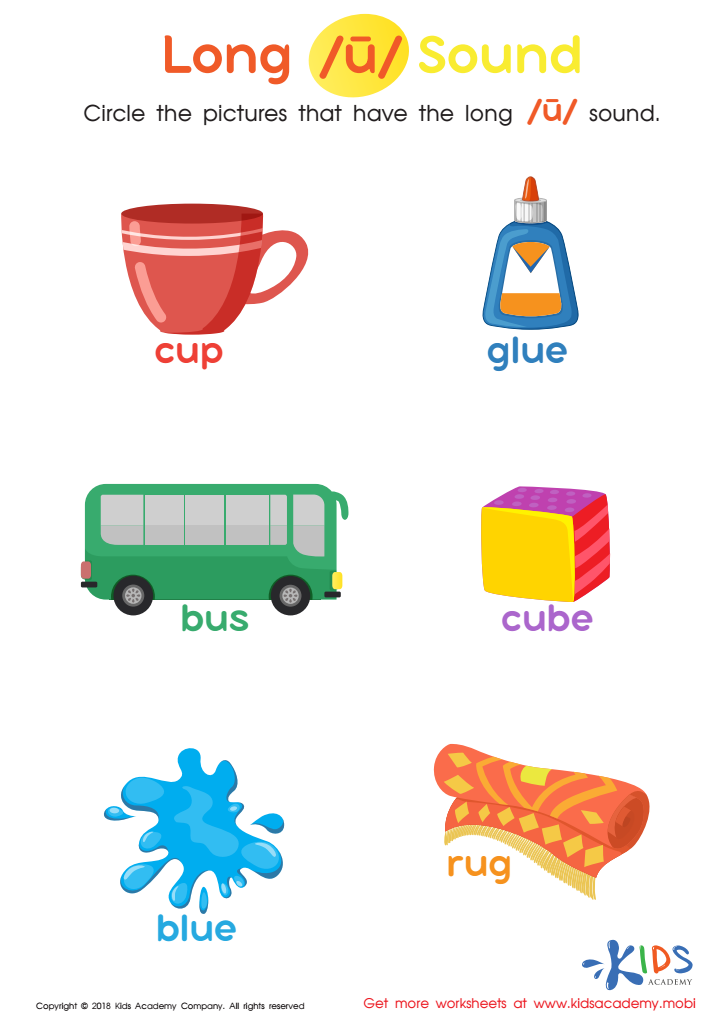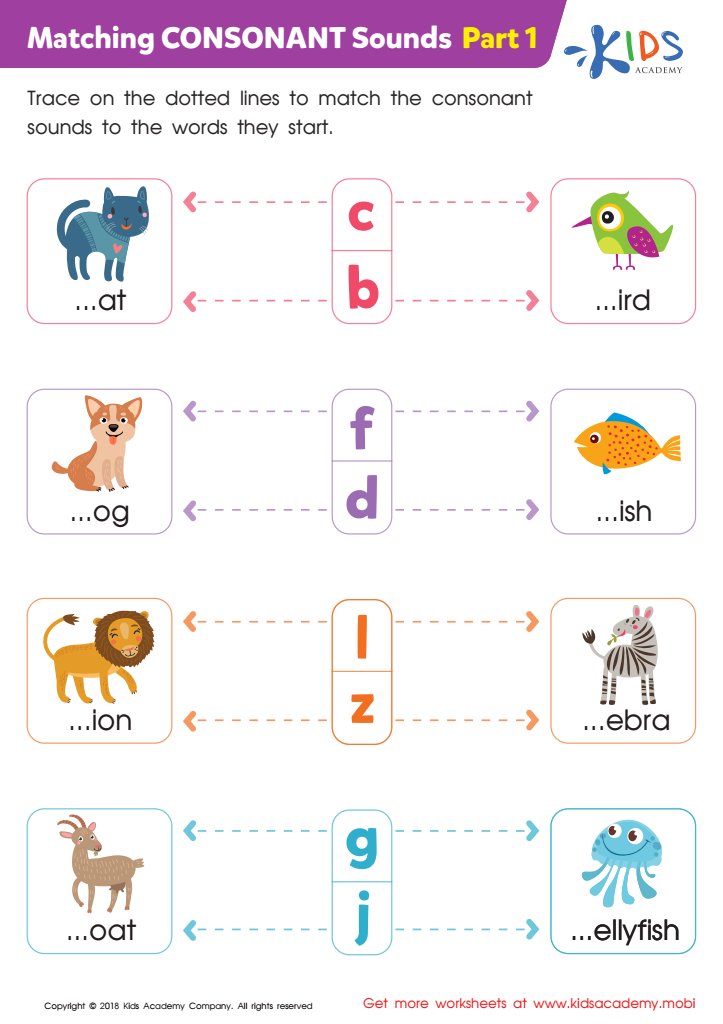Phonics Skills Normal Vowels and Consonants Worksheets for Ages 3-6
4 filtered results
-
From - To
Discover engaging Phonics Skills Worksheets designed for children ages 3-6, focusing on normal vowels and consonants. Our printable resources provide a fun and interactive way to introduce and reinforce essential phonetic concepts. These worksheets promote early literacy by helping young learners recognize and differentiate between vowels and consonants through a variety of activities, including tracing, matching, and identifying sounds. Ideal for parents and educators alike, these worksheets support the development of foundational reading skills in a playful and engaging manner, ensuring children build confidence while learning. Foster a love for reading with our carefully crafted phonics worksheets today!


Short Vowels /e/, /i/, and /u/ Worksheet


Long «u» Sound Worksheet


Long and Short Vowel Sentences: Assessment Worksheet


Matching Consonant Sounds: Part 1 Worksheet
Teachers and parents play a crucial role in early childhood education, particularly in developing phonics skills among children aged 3-6. Phonics, the relationship between letters and their sounds, is foundational for reading and writing. By understanding normal vowels and consonants, children build essential decoding skills that help them sound out words.
At this age, the brain is incredibly plastic, making it ideal for learning language nuances. Early phonics training not only enhances literacy skills but also boosts overall cognitive development. Mastering vowels (like “a,” “e,” “i,” “o,” “u”) and consonants paves the way for children to recognize patterns and develop more advanced reading skills later on.
Furthermore, these skills instill a love for reading early in a child's life. When children can blend sounds and read independently, their confidence flourishes, enabling them to explore new ideas and stories that enhance their vocabulary and comprehension.
Therefore, investing time and resources in phonics education is essential. Parents and teachers should collaborate to create rich language environments, filled with engaging activities and practice that highlight vowels and consonants, fostering a generation of confident, capable readers.

 Assign to My Students
Assign to My Students












